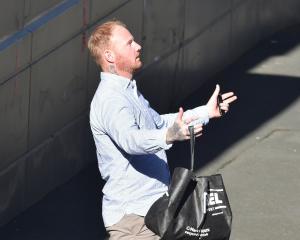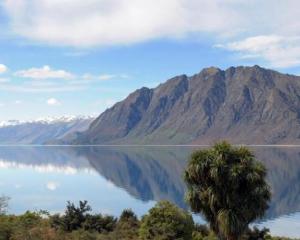
In a joint statement yesterday, three Otago councils said they had been working together since late last year and would seek councillor approval for a proposed partnership with each other, central government, and the private sector, next week.
Capitalising on the visitor economy to boost economic growth, leveraging private investment to deliver public health services and "transforming the transport system", were all part of the regional deal proposal published yesterday by the Queenstown Lakes District Council.
Queenstown Lakes Mayor Glyn Lewers said Queenstown Lakes and Central Otago were "an economic powerhouse".
"But there is urgency to address critical infrastructure needs and deliver affordable housing."
Central Otago Mayor Tamah Alley said the combined "Otago Central Lakes" area was one of the fastest growing areas in New Zealand — and its growth was not expected to slow over the next 20 years.
Otago Regional Council chairwoman Cr Gretchen Robertson said the area faced significant demands for transport infrastructure investment.
"And Queenstown’s geographically constrained environment, tourism-driven travel patterns, and growing population create uniquely complex transport challenges which require innovative solutions and collaboration."
The regional deal proposal said at present the Otago Central Lakes districts had a combined GDP of $6.1billion a year, adding that for the past quarter-century half of Otago’s GDP growth had come from the districts.
It said spending by visitors to Queenstown Lakes reached $2.8b and $282million in Central Otago in 2023.
One in three international visitors to New Zealand passed through Queenstown, it said.
"We must invest in what is NZ’s ‘hero’ tourism destination to leverage opportunities to build growth in tourism for NZ."
The proposal called for a revised public transport funding model to enable long-term private sector partnering for mass rapid transit.
The councils wanted "a streamlined planning and land acquisition pathway" for mass rapid transit and a reprioritisation of central government funding, access to public-private partnerships, road pricing, the Infrastructure Funding and Financing Act, and the international visitor conservation and tourism levy, to help fund it.
Additionally, it said mass rapid transit would be partially funded through user pays with different fares for residents and visitors, saying fares revenue could reach $18m a year by 2028 and $37m by 2048 with a $5 fare for an end-to-end trip.
Mass rapid transit such as a gondola or the gondola-like cable cars of Christchurch company Whoosh could help to "alleviate road congestion by offering transport that bypasses traditional road networks", it said.
The proposed regional deal would also deliver a bus service linking Alexandra, Cromwell, Wānaka and Queenstown, it said.
Yesterday’s joint statement said the proposal would be voted on by councillors at QLDC next Tuesday and at CODC and ORC next Wednesday.
If all three councils supported it, the proposal would be submitted to the Department of Internal Affairs by next Friday.
Advertisement












